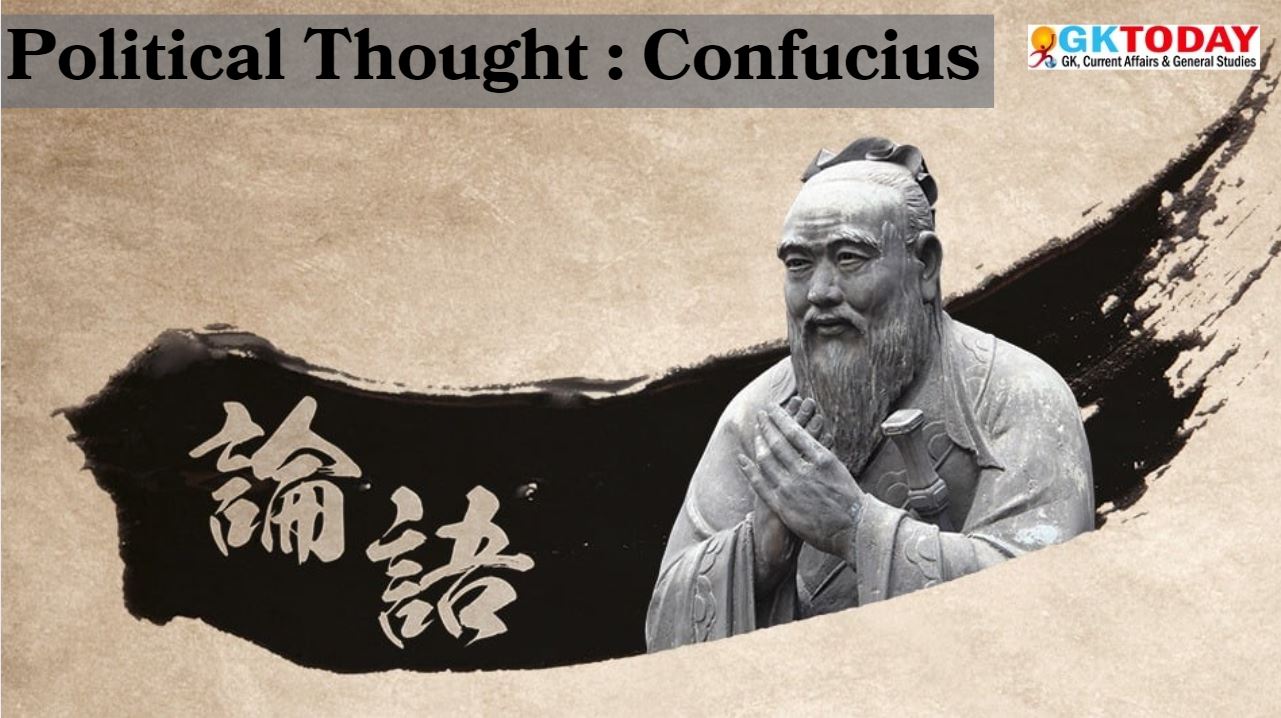UGC-NTA NET Political Science – Confucius and Political Thought
Confucius, also known as Kong Fuzi or Kongzi, is a very important figure in the realm of political philosophy. Born in 551 BCE in Lu, present-day Qufu, Shandong, China, he lived during the Spring and Autumn period. His teachings have shaped Chinese society and beyond, establishing a foundation for ethical governance, social harmony, and moral education. Confucius remains a foundational figure in political thought, with his teachings continuing to resonate in modern discussions on ethics, governance, and social responsibility. His emphasis on moral integrity, education, and social harmony presents a framework for understanding the complexities of human relationships and governance.
Biographical Overview
- – Name – Confucius (Kong Fuzi or Kongzi)
- – Birth – 551 BCE, Lu (present-day Qufu, Shandong, China)
- – Death – 479 BCE – Occupation – Philosopher, teacher, political figure
- – Era – Spring and Autumn period of Chinese history
Confucius emerged from a modest background. His early life was marked by hardship, which shaped his views on morality and governance. He dedicated his life to teaching and promoting ethical conduct.
Philosophical Contributions
Confucius’s core philosophy is known as Confucianism. It is characterised by several key concepts:
- Ren (仁): Benevolence and compassion towards others.
- Li (礼): Ritual propriety and respect for tradition.
- Xiao (孝): Filial piety and respect for parents and ancestors.
- Zhong (忠): Loyalty to the state and one’s superiors.
- Junzi (君子): The ideal moral character, often translated as “noble person” or “gentleman.”
These concepts form the bedrock of Confucian ethics, guiding personal conduct and social relationships.
Political Thought
Confucius’s political thought revolves around governance and social order. Key elements include:
- Role of the Ruler – He emphasised that rulers must possess moral integrity and virtue to govern effectively.
- Meritocracy – Confucius advocated for appointing officials based on merit and moral character, not aristocratic lineage.
- Social Harmony – He believed that a well-ordered society arises from proper relationships and moral education.
- – Five Relationships – Confucius outlined five key relationships that structure society:
- Ruler and subject
- Father and son
- Husband and wife
- Elder brother and younger brother
- Friend and friend
- Importance of Education – He stressed education as essential for cultivating virtue and moral character. These ideas tell the significance of ethical leadership and social responsibility.
Influence and Legacy
Confucius’s teachings have had a deep impact on Chinese society and beyond:
- – Impact on Chinese Society – Confucianism became the dominant ideology, influencing social, political, and educational systems.
- – Civil Service Examination – Confucian texts formed the core of the imperial examination system in China, shaping the bureaucracy.
- – Global Influence – Confucian ideas permeated various East Asian cultures, including Korea, Japan, and Vietnam.
- – Modern Relevance – Today, Confucian principles are discussed in contemporary political and ethical debates. The enduring nature of his ideas reflects their adaptability to changing contexts.
Key Texts
Confucius’s thoughts are encapsulated in several key texts:
- Analects (Lunyu): A collection of sayings and ideas attributed to Confucius and his disciples.
- The Great Learning (Daxue): Discusses the importance of education and moral development.
- The Doctrine of the Mean (Zhongyong): Explores moderation and balance in life.
These texts remain central to the study of Confucian philosophy.
Criticism and Challenges
Despite its influence, Confucianism faces criticism: – Critique of Rigid Hierarchies – Critics argue that Confucianism supports social hierarchies, potentially leading to authoritarianism. – Gender Roles – The philosophy has been scrutinised for its traditional views on gender, often placing women in subordinate roles. – Adaptation in Modern Contexts – The application of Confucian principles in contemporary governance and society is a subject of debate. These criticisms highlight the complexities of applying ancient philosophies in modern times.
Key Figures in Confucianism
Several important figures emerged from Confucian thought: – Mencius (Mengzi) – A prominent follower who expanded on Confucius’s ideas, particularly regarding human nature and governance. He believed that humans are inherently good. – Xunzi – Another Confucian thinker who offered a more pessimistic view of human nature, arguing that people require strict laws and education to behave morally. These figures contributed to the evolution of Confucian philosophy.
Contemporary Confucianism
In recent years, Confucianism has experienced a revival: – Revival in China – There has been a resurgence of interest in Confucian values in Chinese society and politics, reflecting a desire for moral governance. – Confucianism and Globalisation – Scholars discuss how Confucian values can contribute to global ethics and governance, particularly in addressing contemporary challenges. This revival indicates the ongoing relevance of Confucian thought in a global context.


